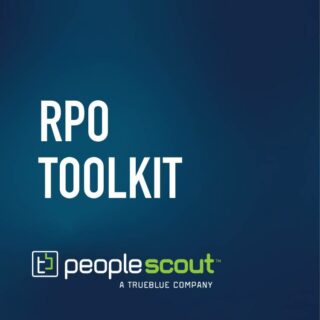Blog series – part 2
Clearly diversity is a top priority for three quarters of employers [1].
Many have proactive mission statements to inspire people from all backgrounds and and remove the barriers that prevent these.
The Black Lives Matter movement has shaken up and catalysed a much-needed focus on the barriers that Black, Indigenous, and People of Colour (BIPOC) [2] face in the world of work. This is of course reflected in their experience of recruitment.
Our research in 2020 revealed, worryingly, that BIPOC and Asian candidates are 8 times more likely to avoid applying if they cannot see themselves as likely to be successful during the recruitment process.
What’s needed goes beyond the now expected role models on websites and in social media and requires sharing hints and tips with candidates about the recruitment process much earlier and more dynamically to level the playing field.
As applicant numbers increase this year, we would hope that the proportional numbers of BIPOC, Asian, disabled, and female candidates would apply and this has been the case for some programmes, but not all.
It is even more important that organisations who wish to create opportunities for all to take proactive steps to retain these candidates through the process when they are most likely to suffer the effects of imposter syndrome and decreased confidence.
We have had wins for clients in this space.
The Government Legal Department (GLD) is the largest in-house legal organisation in the United Kingdom’s Government Legal Service. Each year, on average, they recruit more than 300 qualified lawyers, trainee solicitors and pupil barristers.
They too are focused on making their early careers pipeline an opportunity for everyone in society.
They’ve faced challenges:
– An increase of 68% in applications from 3,319 in 2019.
– Fewer diversity candidates by up to 5%
– Stable proportions of diverse candidates but a 30% increase in requests for adjustments
Over 10 years ago the GLD chose us as their Recruitment Process Outsource (RPO) partner and have stayed with us all this time because they require:
✔ an assessment process which enables them recruit diverse individuals against high standards.
✔ personalised candidate management, and
✔ consistent and rigorous attraction.
As companies weather this pandemic and the economic pressure it brings, it is even more important to have a diverse skill set and people mid to solve problems, engaged with customers, and be resilient.
The ISE reported a 23% reduction in attraction and marketing activity in the long term. This is helpful as no doubt budgets are under pressure. However, reducing marketing and attraction means companies will be less likely to reach and motivate diverse candidates to apply.
An area that I see becoming increasingly important to organisations is recruiting talent from under privileged backgrounds. Lockdown has particularly devastating for individuals from deprived areas. The Social Mobility Foundation recently reported that 40% of children do not have a quiet room in which to study and the social mobility and education disadvantage gap has stopped closing [3].
A very real challenge for organisations is their role in closing this gap so that these individuals do not miss out on amazing life changing opportunities that apprenticeships offer.
Our work with Transport for London (TfL) with a pre-employment programme ‘levelled up’ candidates and prepared them for the recruitment process. It successful converted previously unengaged young people into hires for their apprenticeship programme.
In future, feeder programmes, relationships with local authorities in deprived areas, presence in schools, and parental/carer outreach and marketing campaigns will become a widespread strategy.
The social mobility commission has emphasized that “covid-19 threatens to have a devastating impact on the poorest groups”. 65% school leavers [4] missed out on university offers, and 22 per cent missed out on sixth form offers because of the predicted grades fiasco in 2020 [5]. Applicants from working class backgrounds were twice as likely to have insufficient access to internet access, devices for learning or a suitable place to study, compared to those from middle class homes. Private schools are almost twice as likely to be still teaching A level content as state schools (57% vs 30% receiving regular work and feedback from teachers).[6]
There is a risk of loss of aspiration and talent from the most disadvantaged backgrounds, which will no doubt have a knock-on effect on the future diversity of industries and workplaces.
Social mobility as a strand of your diversity strategy is more important than ever as there is a real risk that barriers to careers for this group of our community will be heightened.
Read Part 1: ‘Early Careers recruitment challenges’
References:
[1] https://www.pwc.com/gx/en/services/people-organisation/global-diversity-and-inclusion-survey.html
[2] https://sifted.eu/articles/stop-using-the-term-bame/
[3] https://www.fenews.co.uk/fevoices/53642-the-education-disadvantage-gap-had-stopped-closing-even-before-the-pandemic-posing-a-major-setback-for-the-government-s-levelling-up-ambitions
[4] https://www.equalityactreview.co.uk/predicting-futures-report-2
[5] https://www.independent.co.uk/voices/predicted-grades-education-bame-social-mobility-b1769267.html
[6] https://www.suttontrust.com/wp-content/uploads/2020/05/COVID-19-and-Social-Mobility-Impact-Brief-2.pdf



